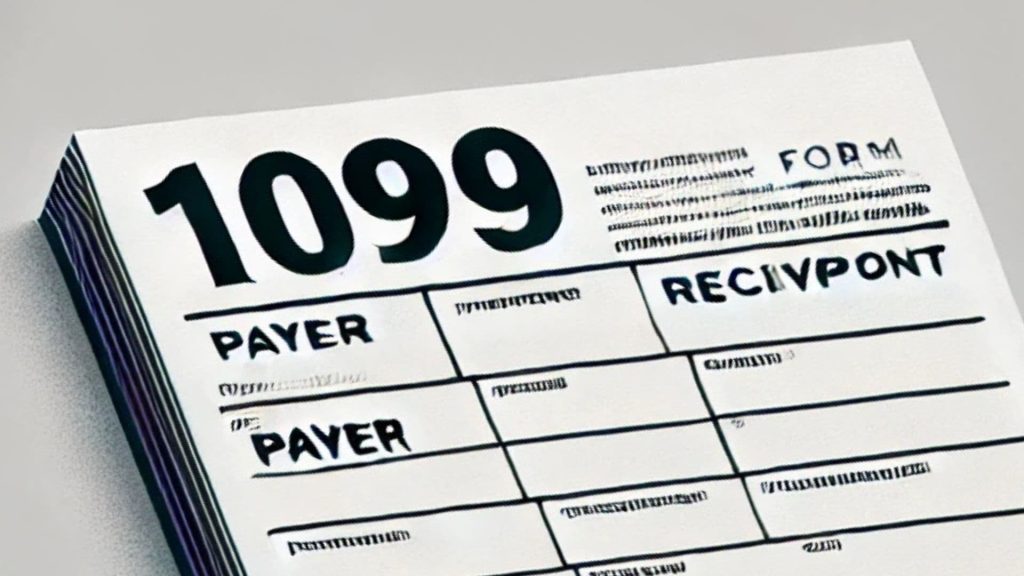
Understanding the intricacies of 1099 forms, their purpose, different types, and the correct procedures for filing is essential for both independent contractors and the businesses hiring them. This comprehensive article will guide you through the key aspects of 1099 form requirements, providing insights into filing deadlines, penalties for non-compliance, and the responsibilities associated with being an independent contractor.
What is a 1099 Contractor?
A 1099 contractor, commonly known as an independent contractor, is a self-employed individual or business entity engaged by another party to provide specific services. These contractors typically set their own working hours, use their own equipment and resources, and are responsible for their own tax payments and benefits, unlike traditional employees who have taxes withheld from their paychecks. There are various types of 1099 contractors, including freelancers, consultants, drivers (like those working for Uber or Lyft), service providers, and contractors in construction and trades.
Difference Between W-2 Employee vs. 1099 Contractor
The main distinction between a W-2 employee and a 1099 contractor lies in their tax categorization and the level of control the employer has over the worker. W-2 employees are typically hired for ongoing positions, work under the direct supervision of the employer, receive regular paychecks with taxes withheld, and are provided with benefits such as health insurance, paid time off, and retirement contributions. In contrast, independent contractors work on a project basis, have more autonomy over their work, invoice clients for their services, are responsible for paying their own taxes (including self-employment tax), and do not receive traditional employee benefits.

How to Determine if a Worker is an Employee or an Independent Contractor?
Correctly classifying workers is crucial, as misclassifying employees as independent contractors can result in legal and financial repercussions. The IRS considers several factors to determine worker classification:
- Behavioral Control: Does the employer dictate how, when, and where the worker performs their duties?
- Financial Control: Is the worker financially independent, covering their expenses, and having the potential for profit or loss?
- Type of Relationship: Are there written contracts or employee benefits like health insurance, retirement plans, and paid time off?
Businesses must evaluate these factors carefully when classifying workers.
Who is Responsible for the Independent Contractor’s Federal Payroll Taxes?
Unlike W-2 employees, independent contractors are responsible for paying their federal payroll taxes, including income tax and self-employment tax (covering Social Security and Medicare contributions). They are required to make quarterly estimated tax payments and file an annual tax return.
Common 1099 Forms for Independent Contractors
The specific 1099 form required for an independent contractor depends on the payment type. Some common 1099 forms include:
- Form W-9: Although not a 1099 form, it’s essential for businesses to collect this document from contractors at the beginning of their service relationship. Form W-9 provides the contractor’s taxpayer identification number (TIN) and ensures accurate reporting.
- Form 1099-NEC: This form reports payments of $600 or more made to non-employees for services during the tax year. Businesses must provide Form 1099-NEC to both the recipient and the IRS by January 31st of the following year.
- Form 1099-MISC: This form reports various other income types, such as rent, royalties, medical and healthcare payments, payments to attorneys, and crop insurance proceeds.
- Form 1099-K: Payment settlement entities issue this form to independent contractors who have received $20,000 or more in gross payments through online platforms and have had 200 or more transactions during the year.
- 1099-A: This form is issued if your mortgage lender cancels some of your mortgages.
- 1099-B: If you made an income from some sort of bartering via bartering exchange or from a sale of securities, you receive 1099B for the money you have received.
- 1099-C: This form is given if you have persuaded a credit card issuer to forgive your debt for less than you owe.
- 1099-CAP: If you are a shareholder in any corporation that had a capital structure change and you received money, stock, or other assets as a result, you may receive a 1099 CAP.
- 1099-DIV: You receive a 1099 DIV when you earn dividends.
- 1099-INT: Earning interest of more than USD 10 from a bank or any other financial institution will get you a Form 1099 INT.
Filing Deadlines for Independent Contractor Tax Forms
- Form 1099-NEC: Submit to the IRS and provide a copy to the recipient by January 31st.
- Form 1099-MISC: File with the IRS by February 28th (paper filing) or March 31st (e-filing). Distribute recipient copies by January 31st (or February 15th if reporting in Box 8 or 10).

Penalties for Not Filing Form 1099 for Contractors
Failure to file Form 1099 for contractors can result in IRS penalties, including:
- $60 per form for filing up to 30 days late.
- $120 per form for filing 31 days late to August 1st.
- $320 per form for filing after August 1st or not filing at all.
- $630 per form for intentionally disregarding the filing requirement.
Filing Form 1099 for Subcontractors
Businesses are generally not required to file Form 1099-NEC for subcontractors. This responsibility falls on the independent contractors who hired them.
Withholding Taxes from Independent Contractors
Employers typically do not withhold taxes from independent contractors’ payments, as they are responsible for paying their self-employment taxes. However, backup withholding may apply if a contractor provides an incorrect TIN or misreports income, requiring employers to withhold a portion of their payments and send it to the IRS.
10. Tax Obligations for Independent Contractors
Independent contractors must report all income and expenses on Schedule C of Form 1040 (or Schedule E for rental income) and pay self-employment tax (15.3%, encompassing Social Security and Medicare). They are also responsible for Federal income tax. They make quarterly payments using Form 1040-ES.
How to Fill Out Form 1099 for an Independent Contractor?
- Step 1: Collect Personal Information Using Form W-9: Gather the contractor’s legal name, address, TIN, and other necessary details.
- Step 2: Understand the 1099 Form: Determine the appropriate 1099 form based on the type of work and payments made.
- Step 3: Fill Out 1099 Forms: Accurately record the contractor’s information and payments made during the tax year.
- Step 4: Transmit Copy A to the IRS: Submit Copy A electronically through the IRS FIRE system or by mail.
- Step 5: Distribute Copy B to Independent Contractors: Provide Copy B to the contractor for their records.
- Step 6: Keep a Copy for Your Records: Retain a copy of the completed Form 1099 for your business records.

FAQs
What is the difference between a 1099 contractor and a W-2 employee?
A 1099 contractor is self-employed and responsible for their own taxes, while a W-2 employee has taxes withheld by their employer and receives employee benefits.
What is the deadline for filing Form 1099-NEC?
The deadline is January 31st of the following year.
What are the penalties for not filing Form 1099 for contractors?
Penalties range from $60 to $630 per form, depending on the severity of the violation.
Do I need to file Form 1099 for subcontractors?
No, the responsibility falls on the independent contractor who hired the subcontractor.
When should I withhold taxes from an independent contractor?
Generally, employers don’t withhold taxes, but backup withholding may apply in specific situations.
What are the tax obligations for independent contractors?
They must pay self-employment tax, federal income tax, and file an annual tax return.
How do I fill out Form 1099 for an independent contractor?
Gather necessary information, select the correct form, accurately complete the form, and distribute copies to the IRS and the contractor.
Can I e-file Form 1099?
Yes, platforms like TaxBandits offer e-filing solutions.